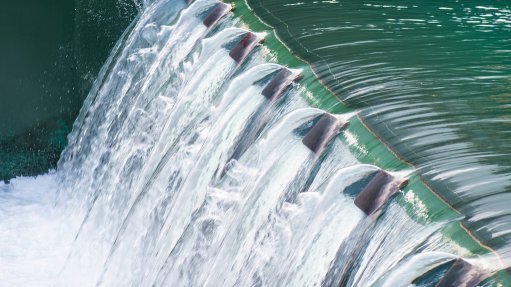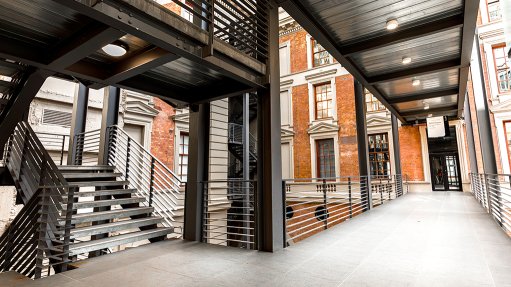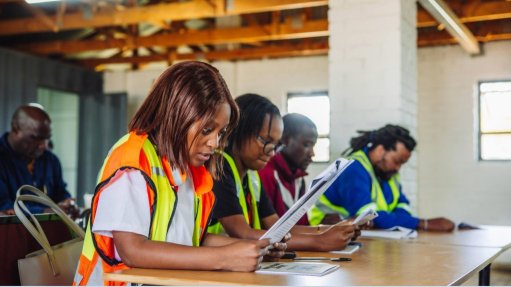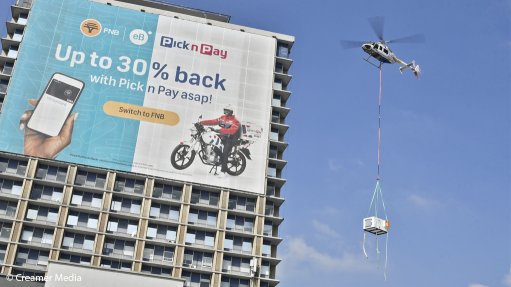Port of Durban decongestion efforts bearing fruit
This article has been supplied.
The first green shoots are emerging from various initiatives undertaken by the multidisciplinary Port of Durban Decongestion Task Team in recent months to relieve traffic pressure and congestion in the port’s Bayhead Precinct and surrounding road networks.
The precinct leading to the port’s Durban Container Terminals (DCT) and other private depots is served by a single main entry motorway, Bayhead Road, which has been plagued by heavy truck traffic congestion attributed mainly to operational inefficiencies at the container terminal. This creates challenges on both the waterside and on the landside, affecting the entire supply chain and impacting shipping lines, the trucking fraternity and the rail sector.
Moshe Motlohi, General Manager at the Port of Durban, who leads the team of private and public sector entities, said the body meets fortnightly and through nine targeted workstreams has adopted an integrated approach to tackle the root causes of Bayhead traffic related congestion and to ensure improved coordination, planning, operations, cargo flows and capacity.
“The first workstream was tasked with ensuring that less pressure is placed on Bayhead Road through proper resource planning and allocation. A key intervention was the reintroduction by terminal operator Transnet Port Terminals of a Mandatory Truck Appointment system, which is considered best practice in the container sector globally,” he said.
Since 27 March 2020 the system has helped to reduce waiting times and enabled the terminal to control the rate of collections and deliveries and use landside capacity optimally. This system also allows planned volumes to be spread across the day.
The Decongestion Task Team has also had to ensure that industry acknowledges that in order for the current picture to change, depots around the port would need to be in a position to operate 24 hours a day / seven days a week to ensure that they are aligned with the operating hours of the container terminals, that trucks are dispatched accordingly and that cargo can be collected even during less popular hours, such as weekends and after hours.
Says Motlohi, “The port system supply chain is currently not synchronised in terms of hours of operation and days. We have agreed that we must as a matter of urgency identify depots that will complement the port and work 24-7. In this way, it will allow continuous flow between the port and those depots instead of one node working fewer or more hours than the other.”
A second workstream has concentrated on all variables that contribute to terminal inefficiencies and poor landside performance. Key steps are in progress to resolve these challenges including the purchase of new equipment, initiatives to address employee morale and an increased effort towards maintaining existing equipment to deliver better reliability and efficiency. Delivery of 23 new straddle carriers is expected between June and July 2020.
“Inside the terminals we are addressing efficiency and effectiveness of our processes by increasing the number of gangs of people working and introducing an hourly management system where performance is monitored every hour per machine and per individual,” said Motlohi.
Durban Container Terminal Pier 2 has now increased gangs from 11 to 13 with the 14th gang undergoing training. Pier 1 has five gangs and a sixth undergoing training.
“We also had to look at issues concerning the truck drivers who call at the port, where pockets of ill-discipline and frustration have been noted among truck drivers,” said Motlohi.
An induction programme is being introduced where truck drivers will be trained in terms of processes, and dos and don’ts within the port. This training will be carried out by the Transnet Maritime School of Excellence.
“Finally, we are working with Metro Police to ensure that there is enforcement of discipline around the port where law breakers are dealt with swiftly,” he explained.
Approval has been granted for Metro Police to operate on Bayhead Road daily until 23h00 to increase visibility and ensure adherence to traffic laws.
In the longer term, more traffic moved directly on rail as well as new back of port facilities such as Cato Ridge will help deal with the challenges arising from larger vessels and greater volumes flowing through the port.
The Port of Durban Decongestion Task Team will also look at high impact projects such as the Bayhead Road Widening where two more lanes are planned on either side of Bayhead Road to create the required capacity.
To achieve better turn-around time and tracking of all initiatives, TNPA has commenced the process of appointing a Decongestion Programme Director, to lead the Decongestion Project Office.
Motlohi said regular updates will be communicated to all stakeholders as progress continues to be made by the Decongestion Task Team and its Workstreams.
Comments
Press Office
Announcements
What's On
Subscribe to improve your user experience...
Option 1 (equivalent of R125 a month):
Receive a weekly copy of Creamer Media's Engineering News & Mining Weekly magazine
(print copy for those in South Africa and e-magazine for those outside of South Africa)
Receive daily email newsletters
Access to full search results
Access archive of magazine back copies
Access to Projects in Progress
Access to ONE Research Report of your choice in PDF format
Option 2 (equivalent of R375 a month):
All benefits from Option 1
PLUS
Access to Creamer Media's Research Channel Africa for ALL Research Reports, in PDF format, on various industrial and mining sectors
including Electricity; Water; Energy Transition; Hydrogen; Roads, Rail and Ports; Coal; Gold; Platinum; Battery Metals; etc.
Already a subscriber?
Forgotten your password?
Receive weekly copy of Creamer Media's Engineering News & Mining Weekly magazine (print copy for those in South Africa and e-magazine for those outside of South Africa)
➕
Recieve daily email newsletters
➕
Access to full search results
➕
Access archive of magazine back copies
➕
Access to Projects in Progress
➕
Access to ONE Research Report of your choice in PDF format
RESEARCH CHANNEL AFRICA
R4500 (equivalent of R375 a month)
SUBSCRIBEAll benefits from Option 1
➕
Access to Creamer Media's Research Channel Africa for ALL Research Reports on various industrial and mining sectors, in PDF format, including on:
Electricity
➕
Water
➕
Energy Transition
➕
Hydrogen
➕
Roads, Rail and Ports
➕
Coal
➕
Gold
➕
Platinum
➕
Battery Metals
➕
etc.
Receive all benefits from Option 1 or Option 2 delivered to numerous people at your company
➕
Multiple User names and Passwords for simultaneous log-ins
➕
Intranet integration access to all in your organisation

















